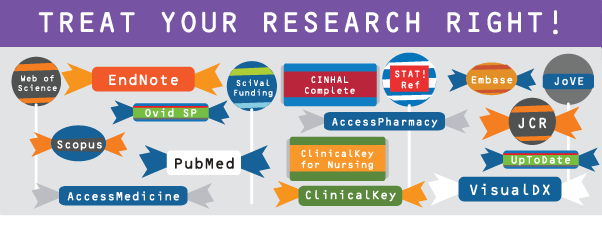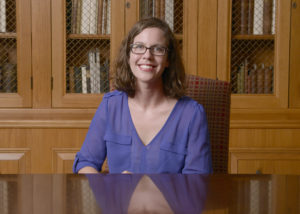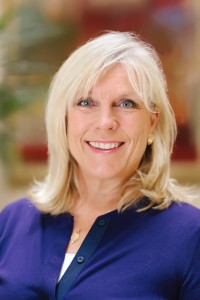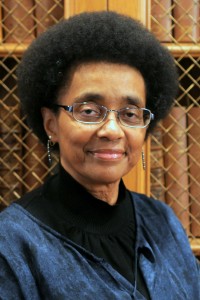 Our Librarians will be outside the South, North and Bass Center cafeterias from 11 a.m. to 1 p.m. on Halloween, October 31, to provide treats and tips. Come by to learn how the Library can help you!
Our Librarians will be outside the South, North and Bass Center cafeterias from 11 a.m. to 1 p.m. on Halloween, October 31, to provide treats and tips. Come by to learn how the Library can help you!
Category Archives: Library Staff
What do archivists do? Find out October 5th with #AskAnArchivist Day on Twitter!
 Post written by Digital Archivist, Cathy Miller, MAS, CA
Post written by Digital Archivist, Cathy Miller, MAS, CA
What comes to mind when you hear the word “archives”? If your first thoughts were “dust, old stuff, attics, or basements”, then this is an exciting opportunity to introduce to you what archives are and what archivists do. Contrary to movie depictions, being an archivist is not about stealing the Declaration of Independence and going on a treasure hunt. Make no mistake: treasures can be found in an archive; however, the roadmap to said treasures is not written in invisible ink on the back of an important historical document!
The first question that may come to your mind is, “what is an archive?” Archives are records created by a person, family, or organization (either public or private) that document the conduct of their affairs and are preserved for both the enduring value of the information they contain and the evidence they provide of the functions and responsibilities of their creator. In laymen’s terms, archives are those records which have been deemed to be of historically valuable importance and are duly preserved.
So, now that we know archives maintain historically valuable records, the question is, “what about UT Southwestern’s archives?” The UT Southwestern archives collect, preserve, and make accessible historical materials documenting UT Southwestern and its predecessor institutions, the university hospitals, careers of notable campus individuals, and Parkland Memorial Hospital. Highlights from our archives include Dr. Alfred G. Gilman’s collection and the Parkland Hospital Collection.
The question remains: “what do I do as the digital archivist here on campus?” Well, it’s my job to appraise, select, describe, preserve, and provide access to historically valuable records about UT Southwestern. And as you may note from my job title, archives aren’t just for old paper records. Archivists have been working on the issues inherent in acquiring, preserving, and providing access to born-digital records for at least 30 years.
Curious to learn more about the UT Southwestern archives and about the work that archivists do? Get your questions ready for #AskAnArchivist day on October 5! I’ll be available at UT Southwestern Library’s Twitter handle (@utswlibrary) to answer your questions. Have you been wondering how to manage your digital files? Worried about digital obsolescence? Curious about digital preservation? Questioning how to preserve your grandmother’s scrapbook? Puzzling over creating appropriate file naming conventions? These are all topics I am excited to talk about with you, and I would love to hear questions from you!
The Family Place CEO to focus on Dallas at October 13th Domestic Violence Awareness Month lecture
 In support of Domestic Violence Awareness Month, everyone is welcome to attend a special presentation entitled Domestic Violence Awareness: A Dallas Perspective, which will be given by Paige Flink, Chief Executive Officer of The Family Place in Dallas, Texas. The program will be held on October 13, 2015 from 12 noon to 1 p.m. in McDermott Plaza Lecture Hall (Room D1.502) and is co-sponsored by the Department of Family & Community Medicine and the Health Sciences Digital Library and Learning Center. Patti Pagels, PA-C, Assistant Professor, Department of Community and Family Medicine will host the event.
In support of Domestic Violence Awareness Month, everyone is welcome to attend a special presentation entitled Domestic Violence Awareness: A Dallas Perspective, which will be given by Paige Flink, Chief Executive Officer of The Family Place in Dallas, Texas. The program will be held on October 13, 2015 from 12 noon to 1 p.m. in McDermott Plaza Lecture Hall (Room D1.502) and is co-sponsored by the Department of Family & Community Medicine and the Health Sciences Digital Library and Learning Center. Patti Pagels, PA-C, Assistant Professor, Department of Community and Family Medicine will host the event.
A vocal advocate for ending violence against women, Paige Flink is the Chief Executive Officer of The Family Place, the Dallas area’s leading organization delivering proven programs that address emotional and physical abuse and incest. When The Family Place began its work in family violence, there were no laws in Dallas protecting battered women, no policies for the arrest of batterers, and no shelters to save lives. Today, Dallas is recognized for its integrated response to domestic violence victims, and Paige has been instrumental in changing public perception and the community’s response.
Through Paige’s leadership, The Family Place has become a national model in the delivery of family violence services. Paige joined The Family Place in 1991 and became its Executive Director in 1997.
After becoming Executive Director, she led the agency through the planning and fundraising process of raising over $6 million in a capital campaign to build a new shelter. Opened in May 2000, The Family Place Safe Campus is a state of the art facility which has 100 emergency shelter beds, 25 transitional housing apartments and a licensed day-care facility. She also led the community through a planning process which resulted in the establishment of Faith and Liberty’s Place, a supervised visitation and exchange center which serves Dallas County families.
A passionate voice for family violence victims, Paige regularly addresses the Texas Legislature and is a frequent contributor to local print, radio and television news broadcasts on family violence and victims’ rights issues. She is a participant in the OpEd Project through the Texas Woman’s University Public Voices Thought Leadership Institute.
Domestic Violence Awareness Month (DVAM) evolved from the “Day of Unity” held in October 1981 and conceived by the National Coalition Against Domestic Violence. The intent was to connect advocates across the nation who were working to end violence against women and their children. The Day of Unity soon became an entire week [then month] devoted to a range of activities conducted at the local, state, and national level. The activities conducted were as varied and diverse as the program sponsors but had common themes:
- Mourning those who have died because of domestic violence
- Celebrating those who have survived
- Connecting those who work to end violence
For more information about the forum, please contact Richard Wayne by phone at 214-648-4755 or by email at richard.wayne@utsouthwestern.edu.
DeShay receives National Library of Medicine award for her library outreach service
 Education Program Coordinator Claudia DeShay, Ph.D will be honored on September 16, 2015 at the annual The National Library of Medicine (NLM) Awards Gala Dinner in Washington, DC as this year’s recipient of the Michael E. De Bakey Library Services Outreach Award for Outstanding Service to Rural or Underserved Communities. The award was established in the early 1990s to recognize the contributions to medical education and librarianship by Michael E. DeBakey, M.D. and to honor a practicing health sciences librarian who serves in such a community.
Education Program Coordinator Claudia DeShay, Ph.D will be honored on September 16, 2015 at the annual The National Library of Medicine (NLM) Awards Gala Dinner in Washington, DC as this year’s recipient of the Michael E. De Bakey Library Services Outreach Award for Outstanding Service to Rural or Underserved Communities. The award was established in the early 1990s to recognize the contributions to medical education and librarianship by Michael E. DeBakey, M.D. and to honor a practicing health sciences librarian who serves in such a community.
NLM has been a center of information innovation since its founding in 1836. The world’s largest biomedical library, NLM maintains and makes available a vast print collection and produces electronic information resources on a wide range of topics that are searched billions of times each year by millions of people around the globe. It also supports and conducts research, development, and training in biomedical informatics and health information technology. In addition, the Library coordinates a 6,000-member National Network of Libraries of Medicine that promotes and provides access to health information in communities across the United States.
